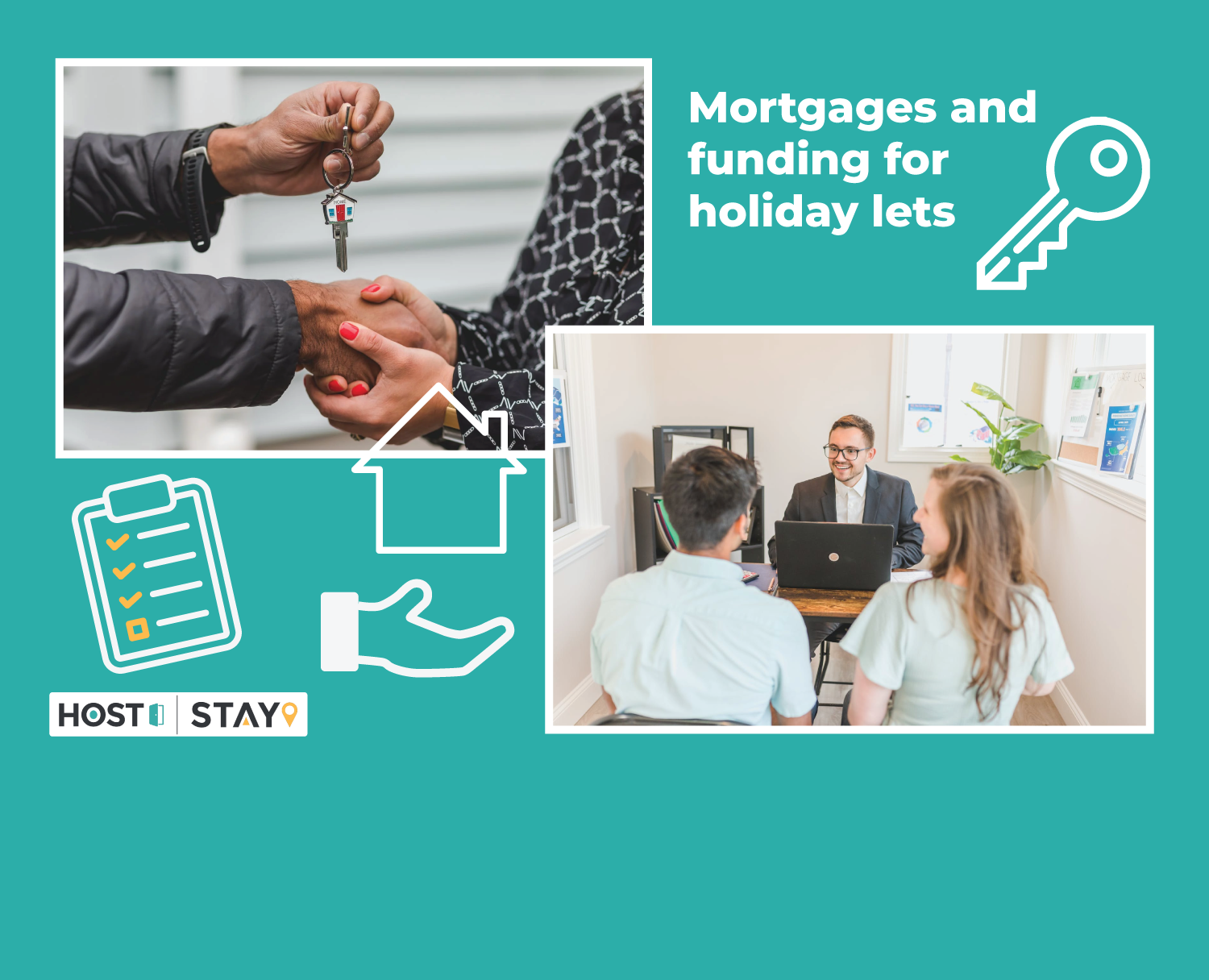
Mortgages and Funding for Holiday Lets
Tuesday 21st December, 2021 by Host & Stay
With the rise in staycations thanks to the effects of the pandemic, there’s never been a better time to invest in a holiday home.
According to Statista, the holiday-related search term with the highest growth in the UK following the Covid-19 lockdown was “staycation”, which soared in popularity with year-over-year growth of over 500 per cent in 2020.
Not only does your own holiday home provide you with a place to get away from it all whenever you like, it can also prove to be a worthy investment, especially at peak times of the year. They also offer special tax advantages, if they are rented out as furnished holiday lettings in the UK or European Economic Area.
So, if you’re thinking of buying a holiday let property, there are a number of options available to you when it comes to funding.

Mortgages
Mortgages to buy a holiday let work on the same basic principle as any other mortgage – in that it’s a loan guaranteed against your property – but with some key differences to be aware of.
A holiday let mortgage differs from a holiday home mortgage, where you borrow money to buy a second home for personal use, and also from a buy-to-let mortgage, where you borrow money to buy a property that will be let out to long-term tenants.
However, because they can be seen as a more risky proposition, without the guarantee of long-term leases, it can be difficult to find a provider, and most of the big high street lenders don’t offer a holiday let mortgage.
That’s because, whereas with a buy-to-let mortgage the lender will work out affordability based on the assumption that it will be let on an assured shorthold tenancy of six to 12 months, holiday lets can be a matter of days, albeit at much higher rates.
A holiday let income will fluctuate, meaning it’s harder to guarantee repayments; in peak months it could be considerably higher than standard rental income, but at other times it could be considerably lower.
In practice, this means that the amount a lender will loan with a holiday let mortgage is based on an income projection figure, rather than a straightforward multiple of the potential rental income.
This is where Host & Stay’s mortgage letter service comes into play – we can provide you with a forecast for the property that will be used by a specialist broker to see which lenders will lend the sum you’re looking for.
Additionally, your own personal income will also have to be taken into consideration, as the lender needs to be certain that you could cover repayments in those periods when the property isn’t occupied. In most cases, you’ll also be looking at paying a deposit of at least 25 per cent.
Unlike a buy-to-let, the type of property you choose will also affect your ability to get a holiday let mortgage – choosing a standard house will make the process easier.
That’s because lenders also want to be sure that the property could be easily sold if you are unable to meet the repayments, and for this reason you’re unlikely to get a mortgage on a holiday park home, which is limited to just vacation use.

Funding
The alternative to applying for a specific holiday let mortgage is to remortgage your existing home and use the funds to buy your vacation.
Depending on how much equity you release, you could either pay for the property outright or pay a hefty deposit and take a loan for the rest.
This solves the issue of the hoops you may have to jump through – and the limitations – for a dedicated holiday let product, but it will, obviously, increase your monthly repayments.
However, it does give you more leeway in the type of property you can purchase, so if you have your heart set on a holiday lodge or static caravan, this will be the best option.
While we’re talking about finance, it’s also worth being aware of the tax implications of holiday home ownership. If your property is in England, and available to rent for 20 weeks of the year (140 days) or more, you must be registered for business rates property tax.
The rules are slightly different in Wales; your property will be valued for business rates if it’s both available to let for a total of 140 days and is actually let for a minimum of 70 days.
More information about all the legal and financial aspects of owning a holiday property can be found here.
Once you’ve taken the plunge and bought your property, then it’s time to make it pay for itself.
Our holiday home management services can help you make the very most of your investment, managing and marketing your property effectively to ensure you reach a growing global audience.
We take care of everything, from photographing the property and writing copy for the ad to managing bookings and finding the perfect balance between great value and impressive revenue.
Interested? Get in touch with our friendly and knowledgeable team, who will be happy to help with any questions you have.